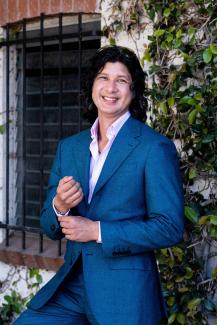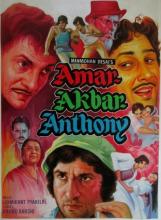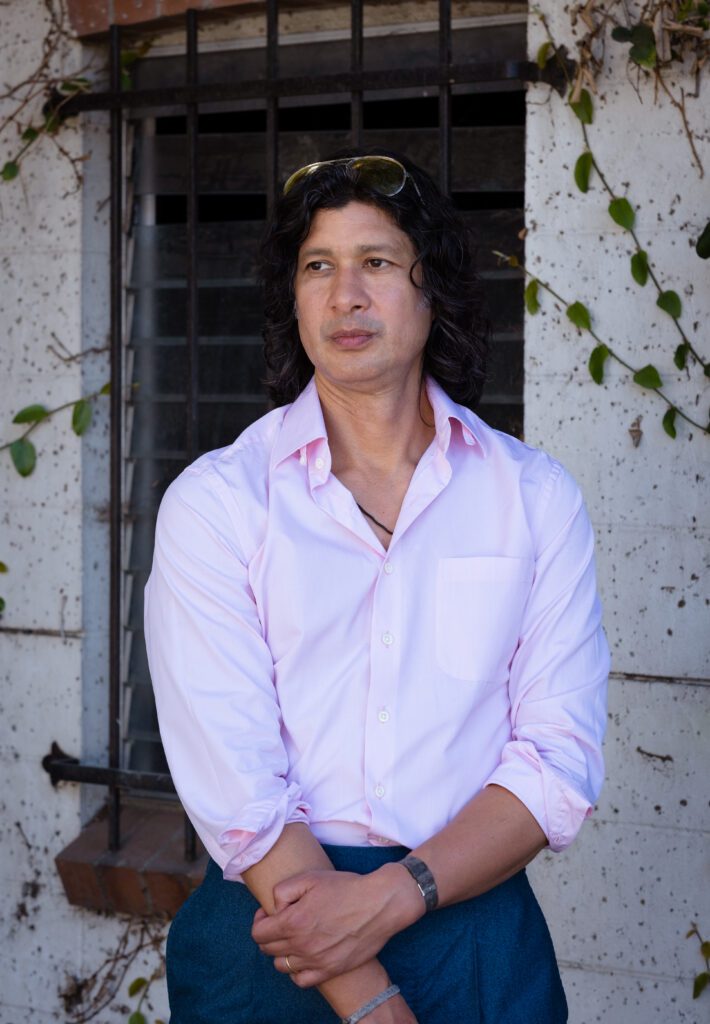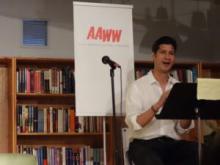
Ph.D., University of Chicago
About
I am an ethnographer and historian of religions. I study the religions of South Asia, specializing in Hinduism and related traditions as practiced in the present day, mostly in vernacular languages, mostly by non-elite people.
As an urban ethnographer, I am committed to an ongoing program of research in the streets, slums, and movie studios of Mumbai. The first b ook to come out of this fieldwork, The Neighborhood of Gods, was released in 2018 by the University of Chicago Press. It examines how slum residents and other marginalized groups use religious images to mark and settle urban space. Not all the people involved identify themselves as Hindu. In fact, one of the book’s main arguments is that sacred space in Mumbai is created according to a visual and somatic praxis observed across religious traditions. At the same time it recasts, in a modern context, a question central to the history of Hindu thought: If the divine is manifest in the phenomenal world, then where and in what form do we recognize God? And with what sort of insight or authority?
Related research interests have included Adivasi (“tribal” or ST) communities; Indian slum neighborhoods and their village roots; and the mediation of darshan, or visual worship, by the movies and other technologies. And I have become interested in exploring the literary possibilities of ethnographic writing. A story I tell about my friendship with one of my Mumbai interlocutors was published in 2018 in a popular magazine, The Believer.
I also have my name on a coauthored book, a study of the film Amar Akbar Anthony. This is a true Bollywood classic. Released in 1977 but cherished to this day, it’s a visual extravaganza that follows three young men of Mumbai—a Hindu, a Muslim, and a Christian—as they dance, joke, and romance their way to a symbolically overloaded resolution in which they learn they are long-lost brothers. “Amar Akbar Anthony”: Bollywood, Brotherhood, and the Nation, by Christian Lee Novetzke, Andy Rotman, and me, came out from Harvard University Press at the end of 2015.
Currently, there are three big projects on my desk. I’ve been spending time lately thinking about about Hindu “idolatry”—as exemplified in the form of the elephant-headed Lord Ganesh—as a motif in modern English-language fantastic fiction, including works by Kipling, Lovecraft, Robert E. Howard, and others. I’m also working on a concise narrative history of Mumbai for the Cities of the Modern World series from Cambridge University Press, research for which is supported by an award I received as UCSB’s 2020–21 Emmons Faculty Fellow.
And as a 2022–24 Fulbright-Nehru Senior Scholar, I have been moving on with the next stage of my fieldwork in Mumbai. The new ethnography, provisionally titled “Lords of Ebb and Flow,” focuses on religious life and precarity in neighborhoods facing a process locally known as “shifting”: resettlement by forces of urban development. I am grateful to have received support for this work from the Fulbright U.S. Scholar Program.
I have affiliations with UCSB’s Department of History and Department of Film & Media Studies.
Publications

The Neighborhood of Gods: The Sacred and the Visible at the Margins of Mumbai. South Asia across the Disciplines series. Chicago: University of Chicago Press, 2018.
“Probably one of the best scholarly books ever written on Indian urban spaces. . . .” —Religion and Society

“Amar Akbar Anthony”: Bollywood, Brotherhood, and the Nation. Coauthored with Christian Lee Novetzke and Andy Rotman. Cambridge, Mass.: Harvard University Press, 2016.
“One of my most stimulating reads of the last year. . . . Scholarly and playful at the same time, which is a very rare thing.” —Forbes India
“A book that is as daring and inventive, as zany and counterintuitive as the film itself. . . .” —The Wire
Warli art meets activist hiphop! An amazing video feat. Prakash Bhoir (unaffiliated with my research, but very much sharing its concerns):
In 2019, I did an interview about The Neighborhood of Gods with Raj Balkaran of the University of Toronto on his podcast, New Books in Hindu Studies.
Articles
- “At Home in Filmistan.” The Believer 119 (June/July 2018): 12–21.
- “Weird Tales: Lord Ganesh and the Golden Age of American Pulp Fiction.” In Wonder in South Asia: Histories, Aesthetics, Ethics, edited by Tulasi Srinivas. Albany: SUNY Press, 2023.
- “A Hole in the Wall: Religion in the Poetry of Arun Kolatkar.” In Religions, Mumbai Style: Events, Media, Spaces, edited by Michael Stausberg. Delhi: Oxford University Press, 2023.
- “Is Adivasi Religion the Same as Hinduism?” In Indigenous Religions in 5 Minutes, edited by Natalie Avalos and Mollie Bassett. Sheffield: Equinox, 2022.
- “Is Adivasi Religion Different from Hinduism?” In Indigenous Religions in 5 Minutes, edited by Natalie Avalos and Mollie Bassett. Sheffield: Equinox, 2022.
- “Space, Place.” A Universe of Terms (special project of The Immanent Frame, Social Science Research Council online publication). February 2020.
- “Site, Sight, Cite: Conceptualizing Wayside Shrines as Visual Culture.” SAMAJ: South Asia Multidisciplinary Academic Journal 18 (“Wayside Shrines: Everyday Religion in Urban India” special issue) (2018).
- “Line.” South Asia: Journal of South Asian Studies 40 (No. 2, “Keywords” special section) (2017): 342–44.
- “Educate, Agitate, Organize: Sudhir Waghmare.” In Figures of Buddhist Modernity in Asia, edited by Justin McDaniel, Mark Rowe, and Jeffrey Samuels. Honolulu: University of Hawai‘i Press, 2016.
- “Hinduism in Film.” Oxford Bibliographies in “Hinduism.” Edited by Alf Hiltebeitel. New York: Oxford University Press, 2015.
- “Sai Baba of Bombay: A Saint, His Icon, and the Urban Geography of Darshan.” History of Religions 54 (No. 2, “Indian Gurus” special issue) (2014): 151–87.
- “‘Bonafide Tribals’: Religion and Recognition among Denizens of Mumbai’s Forest Frontier.” Journal for the Study of Religion, Nature, and Culture 4 (No. 2, “Forests of Belonging” special issue) (2010): 191–212.
- “Unravelling the Encoded Cultural Messages of a Much Loved Entertainer.” With Christian Lee Novetzke and Andy Rotman. The Wire, 13 January 2016.

